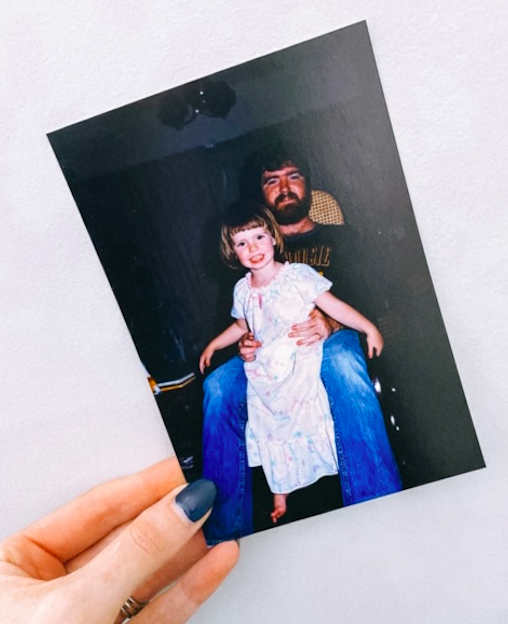
“I define connection as the energy that exists between people when they feel seen, heard, and valued; when they can give and receive without judgment; and when they derive sustenance and strength from the relationship.” ~ Brené Brown
~
Everything in life is in a constant state of flux—always moving and shifting.
I think that’s why I’m so drawn to the ocean. You can see the ebb and flow in the waves. In a way, it mirrors much of our life experiences. The water can be like glass, still and calm. Or it can rough and stormy, out of control and overpowering.
Relationships are much the same. Our friends come and go. Some for longer and others, shorter.
I truly believe that every person who has shown up in my life was meant to be there. Each teaching and sharing lessons that needed to be learned.
What I didn’t anticipate was how much grief changed relationships. In the early days, the sting of the silence hit hard. I wanted to talk about Dad all the time. As if somehow that would mean he wasn’t dead. It felt like everyone should care as deeply as I did about my dad’s death. The reality is that’s completely unrealistic. Until someone loses their own parent, they truly don’t understand what ache that leaves in your soul.
Emotions can be tricky; death has taught me how important they are. Prior to this experience, I struggled with expressing them in a healthy way. But when death comes knocking, you are thrown into a stripped-down state of existence. It’s such a real and raw moment in our lives, forever leaving its mark on us.
My life experiences up until recently had been free from major trauma or loss. When I met people who were navigating death, I didn’t know what to do. There was so much fear and pain, whether it was my or their sadness, it simply reminded me of how fleeting life can be. I was constantly worrying that I would say or do the wrong thing, as if somehow my words could make them fall apart.
Now I realize that is impossible. There’s nothing anyone could say that would make me miss my dad any less. Hiding my emotions doesn’t help me nor does it teach others about what grief is really like.
As I emerge from the darkness that swallowed me up this summer, I am struggling to find my footing. I think it surprised me how few people have asked how I’m doing as the months’ wear continue, as if somehow I’ve moved on. Maybe it’s my fault for not stating my needs, for not expressing that I am not as strong as you’d think. My heart hurts some days, but I just keep moving forward.
There’s BG: before grief, and AG: after grief. A definitive line separating the two lifetimes.
What I have learned over the last few months is the need for deep and meaningful connections. Those types of friendships where I truly feel seen and heard. The friendships where we can discuss all of the world’s problems or break down and cry. This is something that’s still so difficult for me—right now, only my written word or my car know the deepest pain that I keep locked away.
Below are some of things that really helped me feel supported during my grief journey:
1. Just show up for them. You can’t take away the pain, but even expressing that very thought makes such a difference. Knowing that I could show my soul in the mess of grief without judgment has been so important.
2. If you know the person who died, ask if you can share stories about them. Alternatively, if you don’t know them, ask your friend if they are willing to share stories. Talking about my dad is one thing I crave so much. It helps keep his memory alive for me.
3. Acknowledge the dates—birthdays, anniversaries, holidays. These events are different after a loss. Having someone check in on me made me feel like it was okay to be sad still.
4. In early grief, check in on your friend as much as possible. It can be as simple as a text saying, “thinking of you.” Don’t take it personally if they don’t respond right away.
5. Grief never really goes away. Some days will be amazing and others will feel extra heavy. Just show as best as you can. If you don’t know what to say, simply ask.
It’s up to me to speak up and be clear about what my boundaries are. I have come to understand that simply because others don’t check in as much as I would, it doesn’t mean they don’t care. Life happens and with that, relationships change. With this newfound knowledge, I release old fears and the need to chase acceptance.
I am now leaning into my compassion and trying my best to be present: inviting space for relationships to expand and transform; to show up for others in the way that I need to be loved; express what I need and how that looks in my life.
In that regard, I am grateful for the person I am AG (after grief). It’s allowed old fears and stuck emotions to fall away. I understand what those in grief are looking for: simply to be seen and heard, and the knowledge that their loved one is still forever present.
We never move on from grief, we just learn how to grow and live with it.
~







Read 0 comments and reply